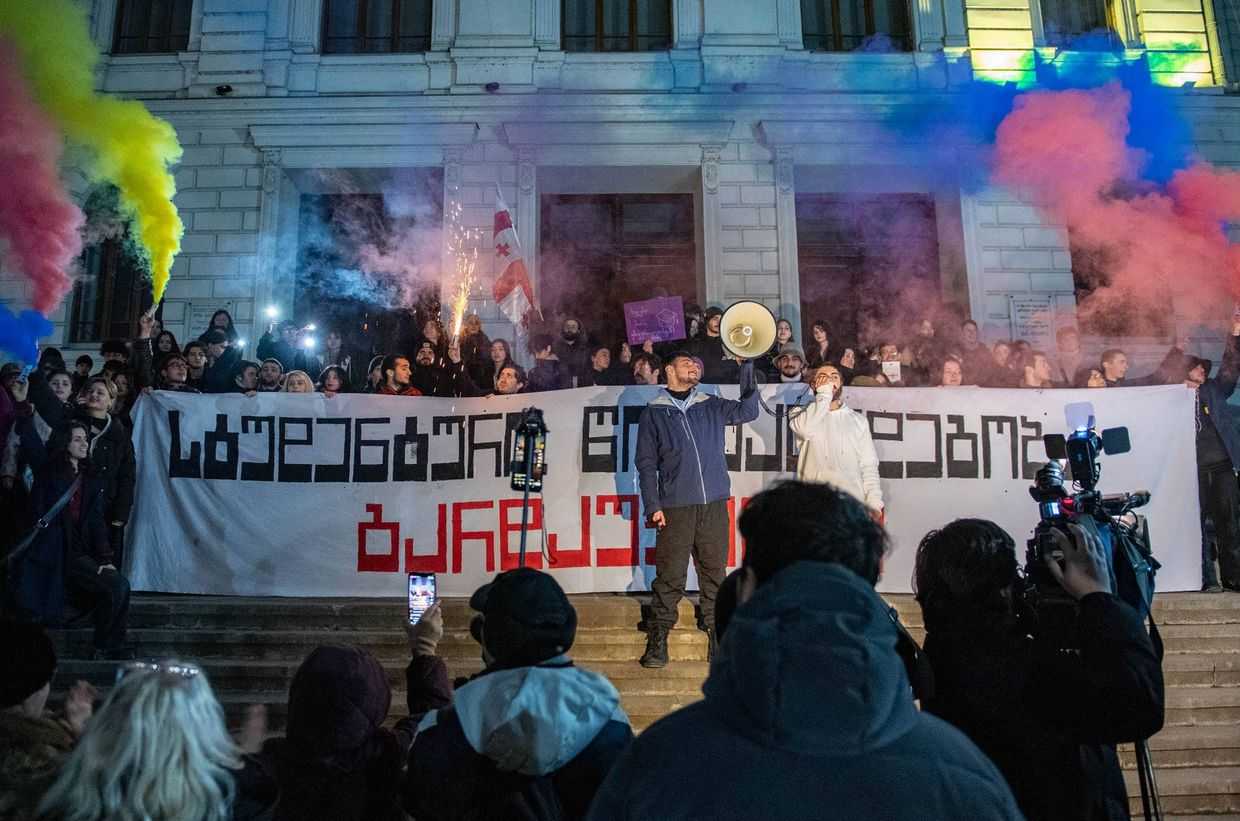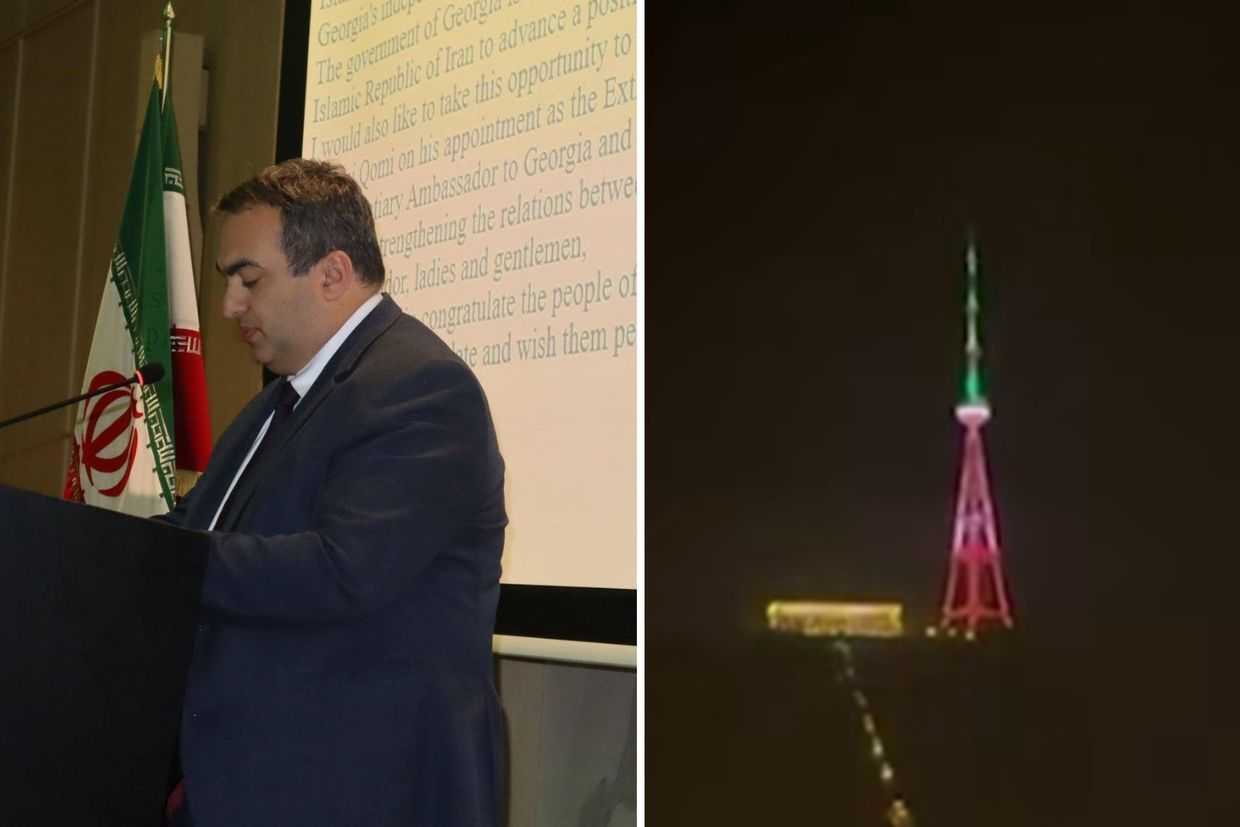

Georgia’s parliament has adopted a bill outlawing sexual harassment, levelling fines against those found guilty of unsolicited ‘sexual behaviour’.
On Friday, Parliament passed the bill in its third and final reading, introducing amendments to several laws, including the labour code.
One-hundred-and-two MPs voted in favour of the bill, with none opposing it.
‘Now we have a definition of sexual harassment in a Georgian law, in line with provisions of the Istanbul Convention’, Dimitri Tskitishvili, an MP from the ruling Georgian Dream party and one of the authors of the bill told TV channel Imedi after the vote.
The law defines sexual harassment for the first time in Georgia’s legal system, as an ‘unwelcome conduct of a sexual character aiming or resulting in violation of one’s dignity and creating an intimidating, hostile, degrading or offensive environment’.
Local rights groups hailed the new law as a victory for women’s rights.
Tamar Dekanosidze, from International women’s rights group Equality Now, said the bill was ‘an amazing victory for women’s rights activists in Georgia and the survivors of sexual harassment, who have been extremely brave to come forward.’
‘They have played a huge role in combatting sexual harassment and raising awareness’, Dekanosidze told OC Media.
‘Now the law no longer allows exempting perpetrators from responsibility for this widespread violation of women’s rights in Georgia. Legal change is one of the most important tools for transforming perceptions’, she added.
In a poll published by UN Women last year, one in five women in Georgia said they had experienced some form of sexual harassment. Nine per cent said they had been victims of sexual violence as children.
According to a December 2017 poll by the Washington-based National Democratic Institute, 77% of people supported a bill against sexual harassment.
[Read more about women’s rights in Georgia on OC Media: Georgia’s feminists face an uphill battle for equality]
Georgian feminist activist Ida Bakhturidze praised the new law on Facebook following the vote. ‘I congratulate all women as this is a historic day for women and another very big victory!’
Bakhturidze noted that she could not name all the women who contributed to the cause, including those who challenged their harassers ‘in the absence of the law’ and anonymously.
Three hundred lari fines
The new law defines ‘sexual behaviour’ as including making sexually explicit comments, showing genitalia, and other verbal or nonverbal sexual behaviour.
According to the new law, sexual harassment in public spaces constitutes an administrative offence resulting in a ₾300 ($110) fine, and a ₾500 ($190) fine or 30-days of corrective labour if the offence is repeated within a month.
Victims of sexual harassment will be able to take their case to court or address the Public Defender, which now has a mandate to issue recommendations to legal entities that must be responded to within 20 days.
The Interior Ministry welcomed the new bill and said they were ‘actively working’ on training police officers accordingly.
The law, which was backed by the ruling Georgian Dream party, was adopted a year after Tatia Samkharadze, a former employ of TV channel Imedi, won a landmark case against her former boss Shalva Ramishvili for sexually harassing her. In January 2018, Tbilisi City Court obliged Ramishvili to pay a ₾2,000 ($740) to Samkharadze in compensation.
High profile accusations
On the same day that the law was adopted, Georgian weightlifter Tatia Lortkipanidze announced that she planned to sue the Georgian Weightlifting Federation and its head coach, Temur Janjgava, for ₾110,000 ($41,000) for sexual harassment and discrimination.
In a press conference on Thursday, Lortkipanidze accused her coach of frequent sexual harassment. She said she had paid a price for speaking up about the harassment publicly, including being blocked from participating in the European championships.
[Read more on the story: Georgian weightlifter sues coach for sexual harassment]
In 2018, accusations of sexual harassment against two high profile men made headlines in Georgia after a number of women publicly came forward.
In March of that year, at least 10 women accused Zviad Devdariani, the former head of local NGO CiDA, of sexual harassment or sexual assault. The women came forward after Devdariani was nominated for a spot on the Public Broadcaster’s board of trustees.
Devdariani denied the allegations against him, claiming to be the victim of a plot to discredit his professional reputation.
Devdariani initiated legal action against 11 people in June for ‘violating his honour and dignity’, including media personalities, politicians, and women’s rights activists.
On 2 November, the Public Defender’s Office said they had found that Devdariani sexually harassed three women; inquiries into claims by two others were terminated due to a lack of evidence.
[Read more about Devdariani’s case on OC Media: Georgian Public Defender: Devdariani sexually harassed three women]
Also in March 2018, the chair of Georgia’s Public Registry, Papuna Ugrekhelidze, resigned after two former employees accused him of sexual harassment.
A report by the Coalition for Equality, a bloc of local rights groups, documented a number of accusations levelled against Ugrekhelidze.
‘The head of the Public Registry would call the accusers offensive nicknames. The head of the Public Registry would tell others that the accusers were his “squirrels”, that he had sex with them, and that he could fire them anytime as he had hired them’, the report said.
In June 2018, Ugrekhelidze sued both women for insulting his professional reputation.
[Read more about Ugrekhelidze’s case on OC Media: Two women suing former Georgian Public Registry head for sexual harassment]
The ruling Georgian Dream-backed law on sexual harassment was adopted a year after Tatia Samkharadze, a former employ of TV channel Imedi, won a landmark case against her former boss Shalva Ramishvili. In January 2018, Tbilisi City Court obliged Ramishvili to pay a ₾2000 ($740) fine to a plaintiff.









